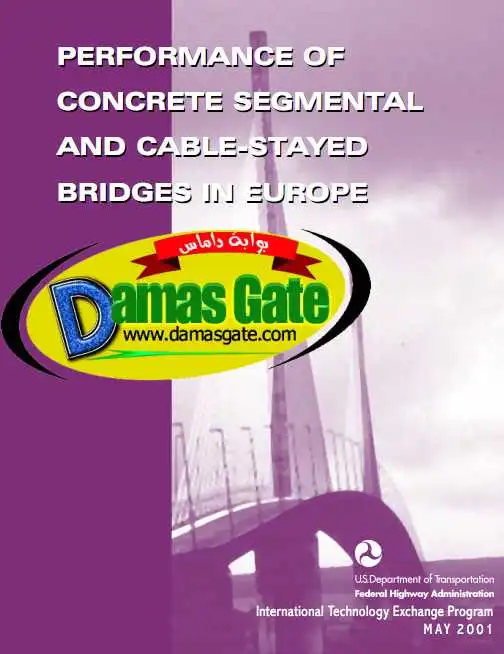Performance of Concrete Segmental And Cable-Stayed Bridges in Europe
Contemporary prestressed concrete segmental and cable-stayed bridges began
being built in Europe in the 1950s. The technology was later imported to the
United States. On average, European structures are a decade or two older than
similar ones in the United States. The purpose of the scan was to evaluate and
learn from European experience with bridges of long service life, in order to
identify durability and needs for maintenance, repair, retrofit, or replacement. The
scan team visited four countries: Switzerland, Germany, Denmark, and France.
Representatives from Norway and the United Kingdom met with the team in
Denmark and France, respectively. The team also shared current U.S. practice,
experience, and research with European counterparts. The goal was also to develop
and promote mutual understanding of the technology, maintenance needs, and
durability of these structures.

OBJECTIVES
The main purpose of the scanning activity was to evaluate the European inventory
of these bridge structures, which have a longer in-service history than similar ones
in the United States. Researchers can then determine what problems have
surfaced with respect to accessibility for inspection, maintenance, repair and
retrofit, long-term durability, demolition, and replaceability. The scanning team set
out to determine what solutions have been used and which ones were effective in
resolving problems that have arisen. This research will indicate what problems
may be anticipated and what technologies might be imported into the United
States to solve similar problems that have or may occur in the U.S. inventory of
these types of structures.
Download
http://s18.alxa.net/s18/srvs2/02/002....in.Europe.rar